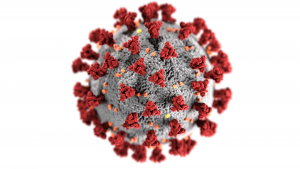Join us on Thursday June 17, 8am PT/ 11am ET / 5pm CET for
Staying ahead of the virus: From a multispecies discovery strategy to highly efficacious, clinically suitable multi-antibody cocktails targeting SARS-CoV-2.
featuring:
Ilse Roodink, PhD, Scientific Director, ImmunoPrecise Antibodies Europe and
Debby Kruijsen, PhD, General Manager, ImmunoPrecise Antibodies Europe
Whereas vaccines significantly contribute to halting transmission of SARS-CoV-2, they are not universally effective. Therapeutic antibodies can fill this gap to efficiently combat SARS-CoV-2. Obviously, long-lasting efficacy of anti-viral approaches heavily depends on the ability to protect against virus variants. As a multi-targeting strategy reduces the risk of mutagenic escape, we have isolated a diversified pool of anti-spike protein antibodies by leveraging our expertise to generate antibody libraries across multiple discovery platforms in different species, to eventually formulate a sensible therapeutic cocktail. A broad range of in vitro characterizations was applied to gain early insight into the epitope landscape and functional characteristics as well as developability profiles. This comprehensive, high-throughput characterization of the obtained lead candidate pool guided the rational combination of high value antibodies into multi-membered cocktails that unlock synergistic effects, significantly boosting neutralization potency in vitro.
To accelerate further clinical development of our prioritized antibody cocktails, 2 individual components were subjected to in silico modeling-guided light molecular optimization to minimize liabilities, while in parallel, in vivo efficacy evaluation in a hamster challenge model validated efficient prevention and treatment of SARS-CoV-2 infection following administration of our prioritized antibody cocktails. Although we anticipate that a multi-targeting strategy is the best solution to reduce mutagenic risk escape, we continuously analyze binding of the antibodies of our lead pool for reactivity towards emerging SARS-CoV-2 variants empirically. To date, we screened our prioritized antibody cocktails towards spike protein of the S. African (B.1.351 lineage), Brazilian (P.1 lineage), UK (B.1.1.7 lineage), New York (B.1.526 lineage) and Californian (B.1.429 lineage) strains and confirmed retained binding. Our pandemic preparedness is further strengthened by the readily accessible, diverse pool of antibodies that we generated, which provides enormous possibilities for plug-and-play cocktails to address future SARS-CoV-2 variants.



